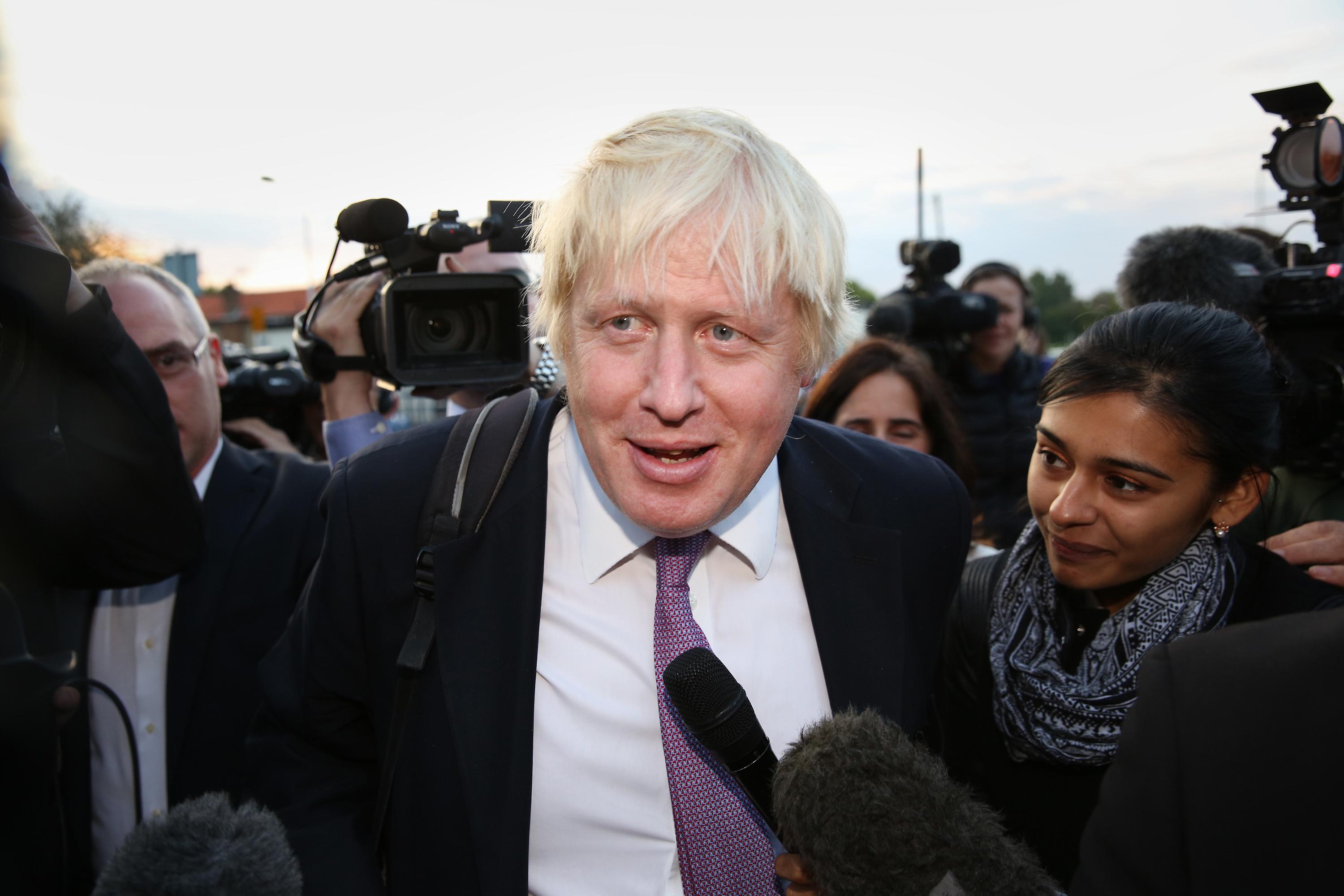Boris Johnson doesn’t compare himself to Winston Churchill. When the London mayor describes his political hero, though, it sounds just a little bit like he’s talking about himself—or at least, the best possible version of himself. “In his politics, he was much more consistent that we often think. He was an imperialist, socially progressive free trader with elements of bohemianism, and he never really deviated from that,” says the staunch conservative Johnson, who is also known for his support for bike lanes, medical marijuana, and gay marriage.
Asked what surprised him about the prime minister when researching his new book, The Churchill Factor, Johnson—famous for his iconic disheveled haircut—notes how Churchill transcended his physical appearance. “He was a runty guy: 5-foot-6 1/2, 31-inch chest. But he manages to present himself to the world as this bisonlike figure. How he became that is fascinating.”
He was also stunned by Churchill’s “sheer intellectual energy,” as exemplified by his ability to “write after drinking an awful lot at dinner, a skill not known even to the most hard-bitten British journalist. Nowadays, we’re a much softer bunch. We think we can do it, but we can’t. We can do it after lunch but not after dinner.”
Johnson, who spoke with Slate during a D.C. stop on his U.S. book tour, doesn’t lack for energy either. The former journalist, who was first elected mayor in 2008, has made himself into an internationally known figure and, according to one recent poll, the most popular politician in Britain, through his ubiquitous media presence, memorable one-liners, and penchant for not taking himself seriously. (It is a little hard to imagine Churchill finding himself stuck on a zip-line, as Johnson did during the 2012 Olympics.)
Johnson, who’s been called a “a walking Bartlett’s of political incorrectness” for statements like joking that voters’ wives would grow bigger breasts if they voted Tory, or suggesting that economic inequality can be largely explained by variations in IQ, says he also wanted to defend Churchill from the slings and arrows of the modern press. “He’s getting a bit further from us in time and like a great constellation, some of his stars are losing their luminescence,” Johnson says. “I wanted to defend him from a lot of the carping and the sniping we hear today, that he was a racist and a sexist and so on.”
The New York-born Johnson also reflected on America’s own longstanding love of Churchill, which can be more fulsome than Britain’s affection for its own wartime leader. “I think Americans see him, in some ways, more clearly,” he says. “They appreciate aspects of his personality and his achievement that Brits don’t. He is about freedom. He is about standing up for what you believe in. The political correctness stuff has been much more corrosive of Churchill’s legacy in Britain than it has been in America.”
But despite Churchill’s iconic status for American hawks, Johnson notes, “He wasn’t a neocon in any means. I don’t think he would have wanted to put boots on the ground in Iraq or Syria.” Churchill, who played a key role in the creation of the modern state of Iraq after World War I, also famously described it as an “ungrateful volcano.”
Johnson, who is often mentioned as a possible future candidate for prime minister but has been coy about his plans, says Churchill would feel right at home in today’s politics. “I think a lot of the debates we’re having today would be very familiar to him,” he says.
Among the biggest of those debates is the one over Britain’s role in Europe, which could dominate British politics for the next few years if the country goes ahead with a proposed yes-or-no referendum on EU membership in 2017. This will almost definitely take place if the Tories win next year’s general election.
Churchill was a strong supporter of a united Europe following the second war. His most recent biographer, by contrast, has been a skeptic, saying Britain shouldn’t be afraid to pull out of the union if it can’t get the reforms and concessions it wants and calling for quotas on EU migrants.
“The destiny of Britain, as Churchill saw, was to be allied with America when we possibly can be, allied with our friends in the former empire and the commonwealth, but also being a key European player,” Johnson says. “We may want to change our relationship a bit, but fundamentally we will remain within the European common market.”
Johnson says he will be heavily involved the campaign to push for Britain to have more “control over borders and to restrain costly regulations from Brussels,” but he contrasts his approach with some of the public anger provoked by issues of immigration and sovereignty, saying, “We need to approach this whole thing with a spirit of openness and cheerfulness.”
